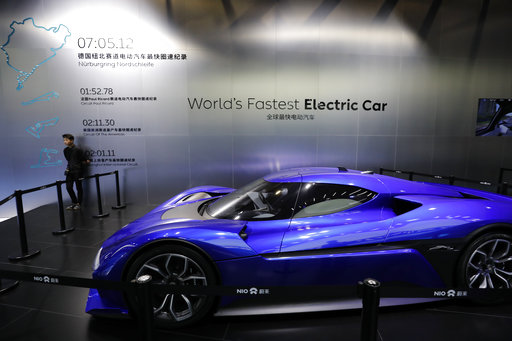
Chinese electric vehicle companies are making significant strides in Thailand, a major industry hub, while Europe and the United States impose tariffs to keep them out.
A year ago, Ma Haiyang and eight colleagues arrived in Thailand to establish the first international operation for GAC Aion, a Chinese electric vehicle maker. Initially lacking an office, factory, local staff, and even a clear plan, they set up temporary operations in a Bangkok hotel, using conference rooms and the lobby for meetings. Despite the challenges, the team managed to sell their first electric vehicle just 74 days after their arrival.
Ma Haiyang, the general manager for Aion in Southeast Asia, emphasized the urgency of their expansion: “The window of opportunity for Chinese new energy vehicles going overseas will be relatively short,” highlighting their need to act swiftly.
Chinese electric vehicle manufacturers like Aion are rapidly entering global markets, with Thailand being one of the first to experience this influx. The visible impact is evident, with Chinese car advertisements dominating billboards and rising land prices due to new car factories. This influx is reshaping Thailand’s auto industry, traditionally dominated by Japanese brands like Nissan, Mazda, and Mitsubishi, whose sales have significantly declined as Chinese EVs gain popularity.
The shift is part of China’s broader strategy to dominate the new energy vehicle sector. Years of government support have enabled Chinese manufacturers to efficiently produce electric vehicles and refine their supply chains, which has helped lower prices. However, the international expansion faces challenges, such as tariffs imposed by major markets like the European Union and the United States to protect local industries.
Thailand, a key regional manufacturing hub known as the “Detroit of Asia,” is a crucial market for Chinese EVs due to its size, proximity, and trade relations with China. It represents a strategic entry point for Chinese brands, which are making significant inroads, capturing market share from Japanese competitors.
In 2022, Japanese brands held an 86% share of Thailand’s new car sales, but that dropped to 75% last year. Chinese brands like BYD, Great Wall Motor, and SAIC Motor have significantly increased their presence. The Thai government aims for electric vehicles to represent 30% of automobile production by the end of the decade, a goal that heavily relies on Chinese manufacturers.
Despite a slowing overall car market in Thailand due to economic issues, electric vehicle sales are up 50% from the previous year. Chinese automakers are responding by cutting prices, leading to concerns about a potential price war that could harm the industry long-term.
Great Wall Motor, for example, is focusing more on Thailand as it faces challenges in Europe due to the new tariffs. The company has closed its Munich regional headquarters but remains committed to the Thai market.
Several Chinese EV companies, including BYD, Aion, Great Wall, Hozon Auto’s Neta, and Chery, are either selling cars or building factories in Thailand. Aion, for instance, has opened 41 showrooms and started production at a new factory, with plans to expand further in Southeast Asia.
Thailand’s automotive landscape is also witnessing a shift within influential families, such as the Phornpraphas, who now distribute BYD vehicles through their company, Rever Automotive, contrasting with their previous association with Japanese brands.
As Chinese EVs gain traction, adapting to local market needs—such as enhancing air conditioning and chassis durability for Thailand’s road conditions—has been crucial. The competitive landscape is evolving rapidly, with Chinese automakers aggressively pursuing market share and adjusting strategies to local preferences.
